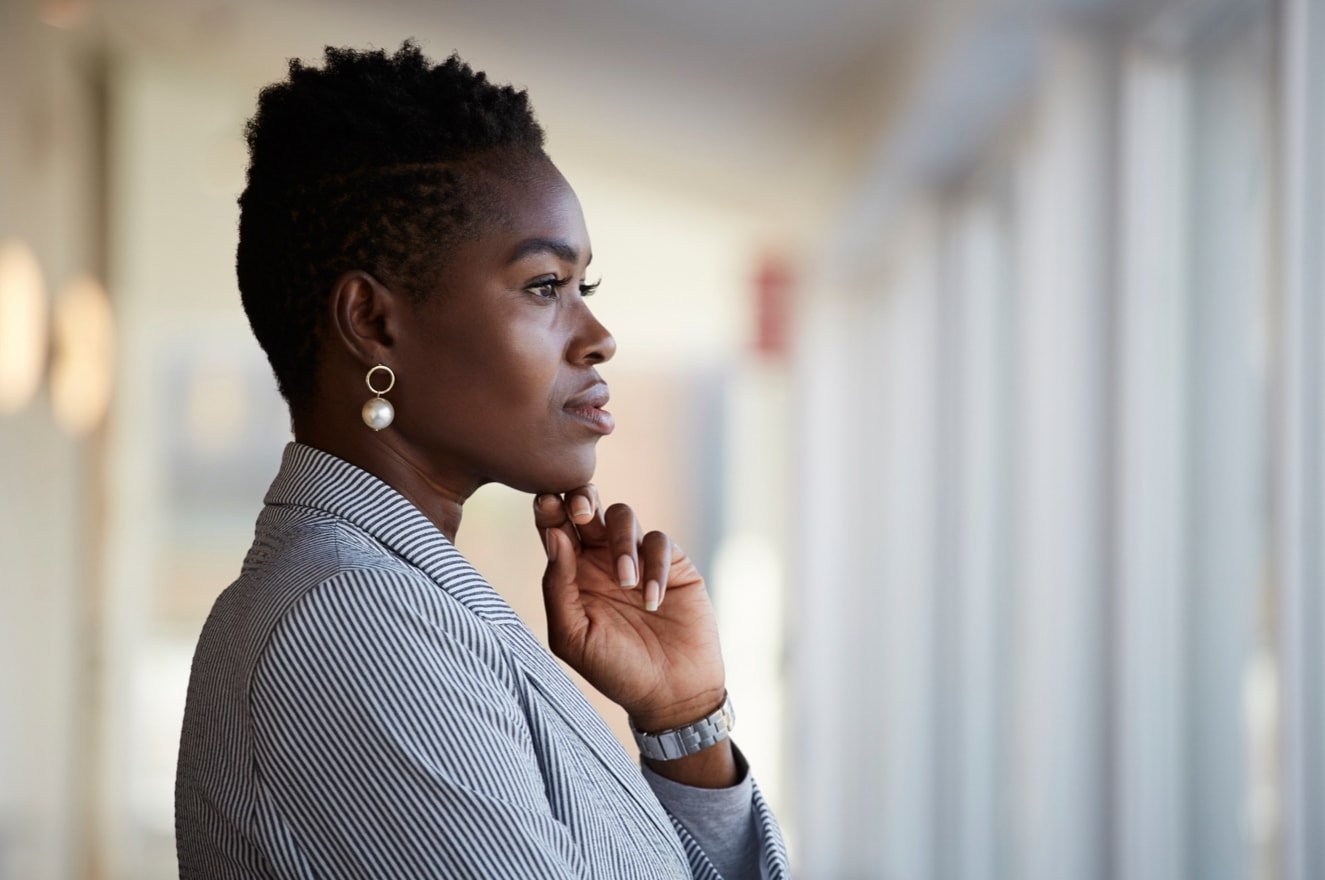
Intersectional Experiences
Women in the Workplace: Black Women
Since 2016, Lean In and McKinsey & Company have conducted Women in the Workplace, the largest study on the state of women in corporate America. Each year, the findings clearly show that there is no single story of women at work. To better capture the diversity of women’s experiences, our 2021 report includes data-driven narratives that highlight the experiences of Black women, Asian women, Latinas, lesbian and bisexual women, and women with disabilites.
By almost any measure, Black women are facing disproportionately high barriers in the workplace. They are heavily impacted by bias in hiring and promotions; Black women are promoted at a significantly lower rate than white women at the first step up to manager, and more than a quarter of Black women say their race has led to them missing out on an opportunity to advance. They experience more microaggressions than other groups of women, and are three to four times as likely as white women to be subjected to disrespectful and “othering” comments and behavior. They are also less likely to report that their managers check in on their well-being or help them balance priorities and deadlines.
“Someone told me I was ‘so articulate.’ They thought they were paying me a compliment. It’s frustrating to hear those comments, to have your decisions questioned, to be perceived as the angry Black woman.” —Black woman, senior manager
To add to their burden, Black women are far more likely than other employees to be coping with the impact of racism and racial trauma. More than 60 percent of Black women have been personally affected by racial trauma in the past year.
Given that they face bias on a regular basis at work, it should come as no surprise that Black women are relatively pessimistic about their company’s commitment to inclusion. Black women are twice as likely as women overall to say their company has not followed through on their commitments to racial equity, and less than half of Black women feel that inclusion is an important priority at their company.
Even as they navigate an incredibly difficult experience, Black women are pushing their companies to do better. Black women are more likely than any other group of employees, including men of color and women of other races and ethnicities, to spend a substantial amount of time on inclusion work that falls outside their formal job responsibilities. They are more likely to speak out against bias and discrimination at work—and more likely to experience retaliation for doing so. And they are more likely than any other group of employees to step up as mentors and sponsors to other women of color. Many Black women say they do this work because they feel it wouldn’t get done otherwise—which speaks to the urgent need for employees with more privilege to show up as allies.
The narrative is based on data from Lean In and McKinsey & Company’s 2021 Women in the Workplace study. While it sheds light on some of the distinct experiences of Black women, it is by no means comprehensive. Women face multiple and intersecting biases due to many aspects of their identity.
Black women refers to women who self-identify as Black, African-American, or Black Canadian.
For more data and insights on women’s experiences at work, read the full Women in the Workplace 2021 report. To learn how your company can empower employees to take meaningful action as allies, explore Lean In’s new Allyship at Work program.

